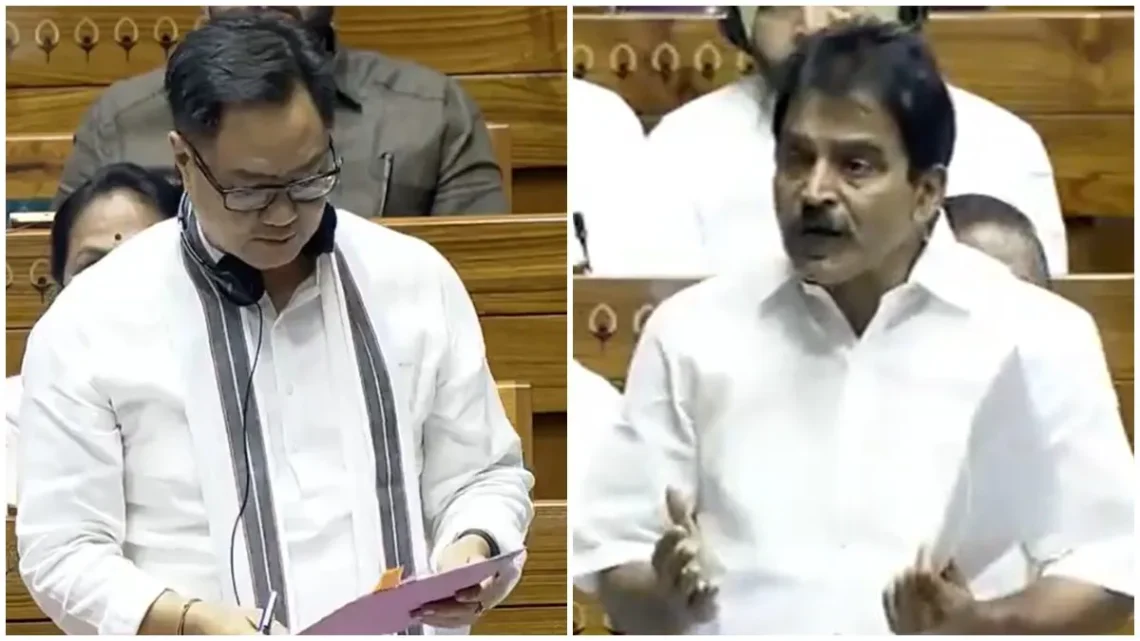
Controversy Erupts Over Waqf (Amendment) Bill in India: Opposition Decries Move as Divisive and Unconstitutional
August 9, 2024The introduction of the Waqf (Amendment) Bill by the Modi government in the Lok Sabha has ignited intense debate, with opposition parties strongly criticizing the bill as divisive, unconstitutional, and anti-Muslim.
The bill proposes significant changes to the Waqf Act of 1995, which governs Muslim charitable trusts and properties. One major amendment includes the provision for non-Muslims to be included in Waqf boards, which has sparked substantial backlash from various political leaders and parties.
Opposition MPs from the Congress, Samajwadi Party, All India Majlis-e-Ittehadul Muslimeen (AIMIM), Trinamool Congress, and others have voiced strong objections. Congress MP K.C. Venugopal condemned the bill as a “fundamental attack on the Constitution” and a “draconian law,” arguing that it undermines the faith and autonomy of Muslim communities. He questioned why non-Muslims would be allowed on Waqf councils, comparing it to allowing non-Hindus on boards governing Hindu temples, which he argues would be unacceptable.
AIMIM MP Asaduddin Owaisi labeled the bill as “discriminatory and arbitrary,” accusing the Modi government of targeting Muslim institutions. He expressed concerns that the bill could lead to government overreach into dargahs, mosques, and other Waqf properties.
Akhilesh Yadav, the Samajwadi Party chief, criticized the bill as politically motivated and questioned the rationale behind nominating non-Muslims to Waqf bodies, arguing that such practices are not seen in other religious bodies.
Dravida Munnetra Kazhagam (DMK) MP Kanimozhi Karunanidhi described the bill as a violation of the Constitution, religious minority rights, and federalism. She criticized the bill for targeting specific religious groups and expressed fears about potential damage to historic mosques under the bill’s provisions.
Nationalist Congress Party (NCP) MP Supriya Sule warned that the bill could worsen minority protection issues, drawing parallels with the situation in Bangladesh. Mohammed Basheer of the Indian Union Muslim League (IUML) branded the bill as part of the government’s “dirty agenda” and warned it could lead to the dismantling of the Waqf system and increased encroachment on Waqf land.
Other critics, such as TMC MP Sudip Bandyopadhyay and National Conference MP Mian Altaf Ahmad Larvi, echoed concerns about the bill’s divisiveness and its impact on the Muslim community. Maulana Mahmood Madani, President of Jamaat-e-Ulema-e-Hind, also expressed strong reservations, urging the government to withdraw the bill and consult with stakeholders to protect Waqf properties.
The Waqf (Amendment) Bill aims to amend the Waqf Act of 1995, addressing issues related to the composition and powers of the Central Waqf Council and state Waqf boards. The proposed changes have ignited a fierce debate over their potential impact on religious autonomy and minority rights in India.

